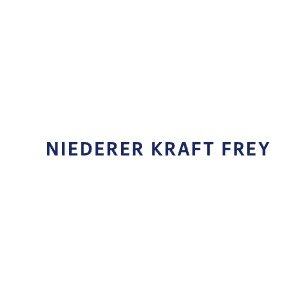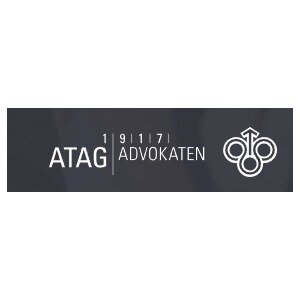Best Renewable & Alternative Energy Lawyers in Switzerland
Share your needs with us, get contacted by law firms.
Free. Takes 2 min.
Or refine your search by selecting a city:
List of the best lawyers in Switzerland
About Renewable & Alternative Energy Law in Switzerland
Switzerland is recognized as a leading nation in promoting renewable and alternative energies. Given the country's commitment to environmental protection and energy transition, Swiss law strongly supports the use of renewable energy sources such as hydropower, solar, wind, biomass, and geothermal energy. The government has implemented a series of policies and regulations designed to encourage sustainable energy production and reduce dependence on fossil fuels. These include legal frameworks that guide energy production, grid access, subsidies, and environmental compliance, making the legal landscape both dynamic and complex.
Why You May Need a Lawyer
There are various scenarios where individuals, businesses, or organizations dealing with renewable and alternative energy in Switzerland may require legal assistance. Common situations include negotiating and drafting contracts for energy supply or infrastructure development, navigating permits for new installations, participating in public tenders, understanding zoning and land use restrictions, handling disputes with energy suppliers or local authorities, or securing government incentives and subsidies. Additionally, compliance with Swiss and EU regulations, intellectual property matters for innovative technologies, and cross-border energy transactions often require specialized legal expertise.
Local Laws Overview
Switzerland's renewable energy sector is governed by a variety of laws and regulations. The Energy Act (Energiegesetz - EnG) and the Energy Ordinance (Energieverordnung - EnV) form the core legislative framework for energy generation, grid integration, and efficiency measures. Federal and cantonal governments share responsibilities, with some cantons having specific laws or incentive programs tailored to local resources and needs. Key aspects include:
- Permitting and licensing requirements for new energy installations
- Feed-in tariffs and financial incentives for renewable energy producers
- Environmental impact assessments and sustainability requirements
- Grid access rules ensuring fair transmission and distribution
- Promotion of self-consumption of renewable energy
- Compliance with building codes, especially for solar and wind projects
Frequently Asked Questions
What types of renewable energy are commonly used in Switzerland?
Hydropower is the dominant renewable energy source, accounting for the majority of electricity production. Switzerland also supports solar power, wind power, biomass, and geothermal energy.
Do I need a permit to install solar panels on my property?
In most cases, you will need a permit from your local canton or municipality. Requirements can vary, so it is important to check with your local authorities before installation.
What financial incentives are available for investing in renewable energy?
The Swiss government and some cantons offer subsidies, tax incentives, and feed-in tariffs for both residential and commercial renewable energy projects. Eligibility and procedures differ based on project size and location.
How do Swiss laws address environmental impacts of energy projects?
Projects must undergo environmental impact assessments to ensure they comply with sustainability and conservation regulations. These assessments are required before permits are granted.
Can I sell the excess renewable energy I produce?
Yes, under Swiss law, individuals and businesses may sell surplus energy to the grid, usually benefiting from regulated feed-in tariffs or market-based rates.
Are there specific rules for wind energy projects?
Wind energy developments are subject to strict zoning, environmental, and noise regulations, and may require public consultation in addition to technical evaluations.
What legal obligations do energy companies have toward consumers?
Energy suppliers must provide clear information on tariffs, ensure fair access to the grid, and meet quality and safety standards as stipulated by Swiss law.
Do cross-border renewable energy transactions face special regulations?
Yes, cross-border electricity trading is subject to both Swiss and European Union regulations, involving customs, technical standards, and network codes.
Can legal disputes arise in renewable energy projects?
Disputes are possible, often involving contract issues, construction delays, land use, or compensation for grid integration. Mediation or court intervention may be required, depending on the circumstances.
How do I protect my renewable energy technology or innovation?
Intellectual property laws in Switzerland protect new technologies, allowing inventors to seek patents, trademarks, or design rights. Legal advice is recommended to ensure proper protection and compliance.
Additional Resources
For further information or assistance regarding renewable and alternative energy in Switzerland, the following resources can be particularly helpful:
- Swiss Federal Office of Energy (SFOE) - Provides policy updates, technical guidelines, and project support
- SwissEnergy Program - Offers practical advice for energy efficiency and renewable initiatives
- Swiss Renewable Energies Association (SSES) - Advocacy and information portal for renewable energy stakeholders
- Cantonal energy offices - Local regulations, permits, and incentive programs
- Professional associations, such as Swissolar (solar energy) and AEE Suisse (renewable energy umbrella organization)
Next Steps
If you require legal assistance regarding renewable and alternative energy in Switzerland, begin by clearly identifying your needs - whether related to project development, compliance, contracts, or dispute resolution. Collect all relevant documentation and background information about your project or issue. Research and contact specialized lawyers or law firms experienced in Swiss energy law. Many firms offer initial consultations to help assess your case. Consider involving technical consultants or engaging with relevant government offices for additional guidance. Taking these steps ensures a well-informed and effective approach to navigating the legal aspects of renewable and alternative energy projects in Switzerland.
Lawzana helps you find the best lawyers and law firms in Switzerland through a curated and pre-screened list of qualified legal professionals. Our platform offers rankings and detailed profiles of attorneys and law firms, allowing you to compare based on practice areas, including Renewable & Alternative Energy, experience, and client feedback.
Each profile includes a description of the firm's areas of practice, client reviews, team members and partners, year of establishment, spoken languages, office locations, contact information, social media presence, and any published articles or resources. Most firms on our platform speak English and are experienced in both local and international legal matters.
Get a quote from top-rated law firms in Switzerland — quickly, securely, and without unnecessary hassle.
Disclaimer:
The information provided on this page is for general informational purposes only and does not constitute legal advice. While we strive to ensure the accuracy and relevance of the content, legal information may change over time, and interpretations of the law can vary. You should always consult with a qualified legal professional for advice specific to your situation.
We disclaim all liability for actions taken or not taken based on the content of this page. If you believe any information is incorrect or outdated, please contact us, and we will review and update it where appropriate.
Browse renewable & alternative energy law firms by city in Switzerland
Refine your search by selecting a city.















